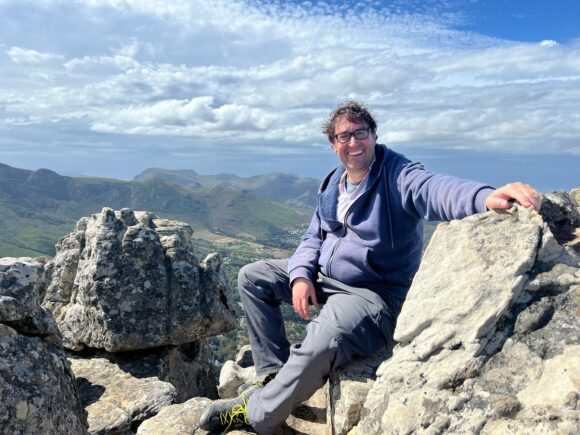- There are no upcoming events.
Recent Comments
No comments to show.
Seminar: Quantum Computing Enhanced Service Ecosystem for Simulation in Manufacturing
Title of talk: Quantum Computing Enhanced Service Ecosystem for Simulation in Manufacturing
Speaker: Rivan Rughubar
(Forschungszentrum Jülich, Germany)
Abstract:
Quantum computing and quantum machine learning are still in their early stages but have the potential to cause paradigm shifts in computing and industry. Faster or more accurate numerical simulations can lead to improvements in engineering and the manufacturing industry. In this talk I will show how we are attempting to apply quantum machine learning to industry data with a laser cutting use case. I will also discuss how these methods compare to other classical machine learning methods. This falls under the QUASIM project which aims to propose a framework for a quantum computing-enhanced service ecosystem for simulation in manufacturing.
Bio:
Rivan is currently a PhD researcher in the Institute for Quantum Computing Analysis at Forschungszentrum Jülich under Frank Wilhelm-Mauch and Tobias Stollenwerk. He completed his undergraduate and MSc at the University of Cape Town under the supervision of Jonathan Shock. His research focuses on quantum algorithms for machine learning and kernel methods in quantum computing.
An announcement may be found here.
Seminar: Kishan Dayaram, An Introduction to Effectus Theory
Title of talk: An Introduction to Effectus Theory
Speaker: Kishan Dayaram
(University of Johannesburg, SA)
Abstract:
The context of an effectus is a new development in categorical logic which generalizes both classical and quantum logic. An effectus allows for a categorical formulation of quantum mechanics in which the effects of the quantum system are required to form an effect algebra (a generalization of the space of effects of a quantum system). In this talk, we introduce the context of an effectus and show that it provides new ways of reasoning about quantum systems. In particular, the notion of pure maps is introduced for the context of an effectus. Pure maps are those that are the composition of a compression map and a filter map which corresponds to measuring and forgetting the validity of an effect respectively. Lastly, we show that conditions on a form (a faithful, amnestic functor) may be used to classify certain properties of an effectus.
Bio:
Kishan Dayaram is a final year PhD mathematics student at the University of Johannesburg. He is supervised by Dr Amartya Goswami (UJ) and Prof Zurab Janelidze (Stellenbosch University). His research is on diagram lemmas of homological algebra. His research interests include category theory, group theory and homological algebra.
An announcement may be found here.
Visit of Professor Marco Merkli (Memorial University of Newfoundland)
During the last month, our group had the pleasure of hosting Prof. Marco Merkli as a visiting researcher from the Memorial University of Newfoundland, Canada.
As a mathematical physicist, Prof. Merkli’s research primarily revolves around elucidating the dynamics of open quantum systems. His expertise lies in developing mathematical tools tailored for analyzing the evolution of systems under external influences. He also endeavours to foster dialogue between the mathematical and physical communities interested in quantum sciences.
During his visit, Prof. Merkli presented some of his most recent work on the thermalization of open quantum systems in contact with non-thermal reservoirs (https://arxiv.org/abs/2312.14290). Furthermore, he gave a NITheCS Colloquium titled, “Evolution of quantum systems subjected to noise”, a recording of which is available here.
Amongst the time our group spend working with Prof. Merkli, we also had the opportunity to join him for a hike up Chapman’s Peak!
We look forward to hosting Prof. Merkli again in the near future.

Posted in Uncategorized
Leave a comment
Seminar: Prof Marco Merkli, Approach to equilibrium of an optical quantum field mode scattering from a non-equilibrium quantum reservoir
Title of talk: Approach to equilibrium of an optical quantum field mode scattering from a non-equilibrium quantum reservoir
Speaker: Prof Marco Merkli
(Memorial University, Canada)
Abstract:
Rigorous derivations of the approach of individual elements of large isolated systems to a state of thermal equilibrium, starting from arbitrary initial states, are exceedingly rare. This is particularly true for quantum mechanical systems. We demonstrate how, through a mechanism of repeated scattering, an approach to equilibrium of this type actually occurs in a specific quantum system. We consider an optical mode passing through a reservoir composed of a large number of sequentially-encountered modes of the same frequency, each of which it interacts with through a beam splitter. We then analyze the dependence of the asymptotic state of this mode on the assumed stationary common initial state of the reservoir modes and on the transmittance of the beam splitters. These results allow us to establish that at small large transmittance, such a mode will, starting from an arbitrary initial system state, approach a state of thermal equilibrium even when the reservoir modes are not themselves initially thermalized.
This talk is intended for an audience which is not necessarily specialized in the topic of open quantum systems or thermalization. It is based on a recent collaboration with S. De Bièvre and P. Parris, available on the arXiv at https://arxiv.org/pdf/2312.14290.pdf.
Bio:
Marco Merkli is a faculty member of the Department of Mathematics and Statistics at Memorial University in St. John’s, Canada. As a mathematical physicist, his research primarily revolves around elucidating the dynamics of open quantum systems. His expertise lies in developing mathematical tools tailored for analyzing the evolution of systems under external influences. This endeavour aims to establish a robust mathematical framework for the theory of open quantum systems, ensuring the precision of physical predictions and reducing uncertainties in the field. Merkli’s mathematical inquiries have also uncovered novel physical phenomena, particularly concerning the impact of quantum correlations (entanglement) on the dynamics of open systems. He endeavours to foster dialogue between the mathematical and physical communities interested in quantum sciences.
The announcement may be found here.
Quantum@SUN group meeting
In today’s Group meeting, Siju Mammen will discuss “An exploration of deep learning for video classification/captioning.”
